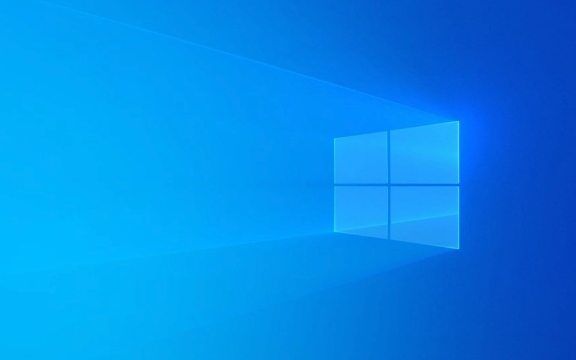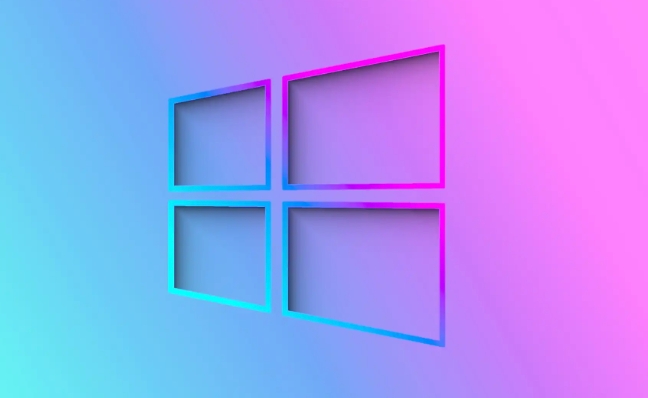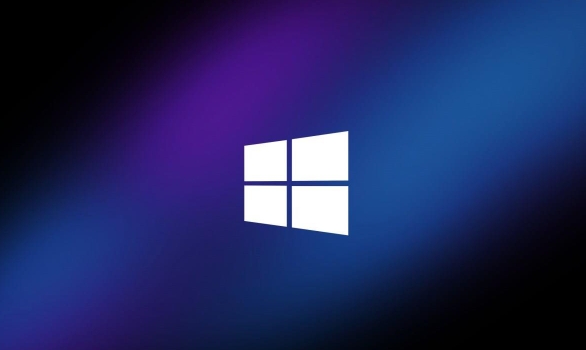To solve the problem of Windows' own VPN client configuration, you must first confirm the basic conditions: 1. Ensure that the local network can access the target server and can use ping or telnet testing; 2. Confirm that the user has the corresponding permissions and use the administrator account if necessary; 3. Turn off the firewall or security software to eliminate interference. Next, check the key settings: 4. Select a protocol consistent with the server (such as PPTP, L2TP/IPsec, etc.); 5. Accurately enter the server address and necessary parameters (such as PSK key). Pay attention to the details of authentication: 6. Make sure that the username and password are correct, pay attention to the format (such as domain\user) and two-factor authentication requirements. Finally check the advanced settings: 7. Check "Include Windows login name" to automatically fill in information; 8. Set "Use default gateway" and DNS according to your needs to ensure normal routing and access. Checking each link in order can solve most problems.

It is common to encounter problems when configuring the VPN client that comes with Windows. In most cases, connection failures or configuration errors are related to setup details, not issues with the system itself. As long as you clarify a few key points, most of the problems can be solved.

Check basic network and account permissions
Before trying out advanced settings, confirm whether the basic conditions are met:
- Ensure the network is smooth : The local network must have access to the target VPN server. You can try pinging the server address (if ICMP is allowed), or use telnet to test port connectivity.
- Correct user permissions : Some enterprise environments will restrict ordinary users from using VPN functionality and require administrator permissions to establish a connection.
- Firewall/antivirus software interference : Temporarily close the firewall or third-party security software to see if the connection is restored.
Sometimes, seemingly complex configuration problems are actually caused by network failure or insufficient permissions.

Check VPN protocol and server information
Windows supports a variety of protocols, such as PPTP, L2TP/IPsec, SSTP, IKEv2, etc. If you are adding a connection manually, be sure to confirm the following:
- The protocol used is consistent with the server side
- The server address is correct (including IP or domain name)
- If L2TP/IPsec is used, remember to enter the pre-shared key (PSK)
For example, if the server requires IKEv2 but you choose L2TP, you will not be able to connect even if the username and password are correct. Some companies will also force specific certificate authentication, and at this time they have to install the corresponding root certificate.

Username and password input are of particular importance
Although it seems simple, this step has a high error rate:
- Password entry errors are the most common reasons, especially case and special characters
- Some systems require a format with "domain\user" such as
domain\user - If it is two-factor authentication, dynamic verification code or smart card login may also be required.
It is recommended to copy the account information elsewhere first, and then paste it in the corresponding box to avoid hand-forming errors.
Small details that are easy to ignore in advanced settings
Some settings do not display by default, but are very critical in specific environments:
- In the "Security" tab, check "Including Windows Login Name" to automatically fill in the correct identity information
- If you cannot access internal resources after connection, check whether the "Use Default Gateway" option is checked, which will affect the routing table
- For remote office scenarios, DNS settings may also affect access experience. If necessary, manually specify the intranet DNS server.
These details usually don't go wrong at the beginning, but become important in complex network environments.
Basically these things need to be paid attention to. The configuration process is not complicated, but there is no error in every link. When encountering problems, you can find the cause by checking them in order.
The above is the detailed content of Troubleshooting Windows VPN client configuration. For more information, please follow other related articles on the PHP Chinese website!

Hot AI Tools

Undress AI Tool
Undress images for free

Undresser.AI Undress
AI-powered app for creating realistic nude photos

AI Clothes Remover
Online AI tool for removing clothes from photos.

Clothoff.io
AI clothes remover

Video Face Swap
Swap faces in any video effortlessly with our completely free AI face swap tool!

Hot Article

Hot Tools

Notepad++7.3.1
Easy-to-use and free code editor

SublimeText3 Chinese version
Chinese version, very easy to use

Zend Studio 13.0.1
Powerful PHP integrated development environment

Dreamweaver CS6
Visual web development tools

SublimeText3 Mac version
God-level code editing software (SublimeText3)
 How to Change Font Color on Desktop Icons (Windows 11)
Jul 07, 2025 pm 12:07 PM
How to Change Font Color on Desktop Icons (Windows 11)
Jul 07, 2025 pm 12:07 PM
If you're having trouble reading your desktop icons' text or simply want to personalize your desktop look, you may be looking for a way to change the font color on desktop icons in Windows 11. Unfortunately, Windows 11 doesn't offer an easy built-in
 Fixed Windows 11 Google Chrome not opening
Jul 08, 2025 pm 02:36 PM
Fixed Windows 11 Google Chrome not opening
Jul 08, 2025 pm 02:36 PM
Fixed Windows 11 Google Chrome not opening Google Chrome is the most popular browser right now, but even it sometimes requires help to open on Windows. Then follow the on-screen instructions to complete the process. After completing the above steps, launch Google Chrome again to see if it works properly now. 5. Delete Chrome User Profile If you are still having problems, it may be time to delete Chrome User Profile. This will delete all your personal information, so be sure to back up all relevant data. Typically, you delete the Chrome user profile through the browser itself. But given that you can't open it, here's another way: Turn on Windo
 How to fix second monitor not detected in Windows?
Jul 12, 2025 am 02:27 AM
How to fix second monitor not detected in Windows?
Jul 12, 2025 am 02:27 AM
When Windows cannot detect a second monitor, first check whether the physical connection is normal, including power supply, cable plug-in and interface compatibility, and try to replace the cable or adapter; secondly, update or reinstall the graphics card driver through the Device Manager, and roll back the driver version if necessary; then manually click "Detection" in the display settings to identify the monitor to confirm whether it is correctly identified by the system; finally check whether the monitor input source is switched to the corresponding interface, and confirm whether the graphics card output port connected to the cable is correct. Following the above steps to check in turn, most dual-screen recognition problems can usually be solved.
 Want to Build an Everyday Work Desktop? Get a Mini PC Instead
Jul 08, 2025 am 06:03 AM
Want to Build an Everyday Work Desktop? Get a Mini PC Instead
Jul 08, 2025 am 06:03 AM
Mini PCs have undergone
 Fixed the failure to upload files in Windows Google Chrome
Jul 08, 2025 pm 02:33 PM
Fixed the failure to upload files in Windows Google Chrome
Jul 08, 2025 pm 02:33 PM
Have problems uploading files in Google Chrome? This may be annoying, right? Whether you are attaching documents to emails, sharing images on social media, or submitting important files for work or school, a smooth file upload process is crucial. So, it can be frustrating if your file uploads continue to fail in Chrome on Windows PC. If you're not ready to give up your favorite browser, here are some tips for fixes that can't upload files on Windows Google Chrome 1. Start with Universal Repair Before we learn about any advanced troubleshooting tips, it's best to try some of the basic solutions mentioned below. Troubleshooting Internet connection issues: Internet connection
 How to clear the print queue in Windows?
Jul 11, 2025 am 02:19 AM
How to clear the print queue in Windows?
Jul 11, 2025 am 02:19 AM
When encountering the problem of printing task stuck, clearing the print queue and restarting the PrintSpooler service is an effective solution. First, open the "Device and Printer" interface to find the corresponding printer, right-click the task and select "Cancel" to clear a single task, or click "Cancel all documents" to clear the queue at one time; if the queue is inaccessible, press Win R to enter services.msc to open the service list, find "PrintSpooler" and stop it before starting the service. If necessary, you can manually delete the residual files under the C:\Windows\System32\spool\PRINTERS path to completely solve the problem.
 How to run Command Prompt as an administrator in Windows 10?
Jul 05, 2025 am 02:31 AM
How to run Command Prompt as an administrator in Windows 10?
Jul 05, 2025 am 02:31 AM
To run command prompts as administrator, the most direct way is to search through the Start menu and right-click "Run as administrator"; secondly, use the Win X shortcut menu to select "Command Prompt (Administrator)" or "Windows Terminal (Administrator)"; you can also open the run window through Win R and enter cmd and press Ctrl Shift Enter to force running as administrator; in addition, you can set shortcut properties to achieve automatic running as administrator. All the above methods require administrator permission and confirmation through UAC. Pay attention to security risks during operation.







